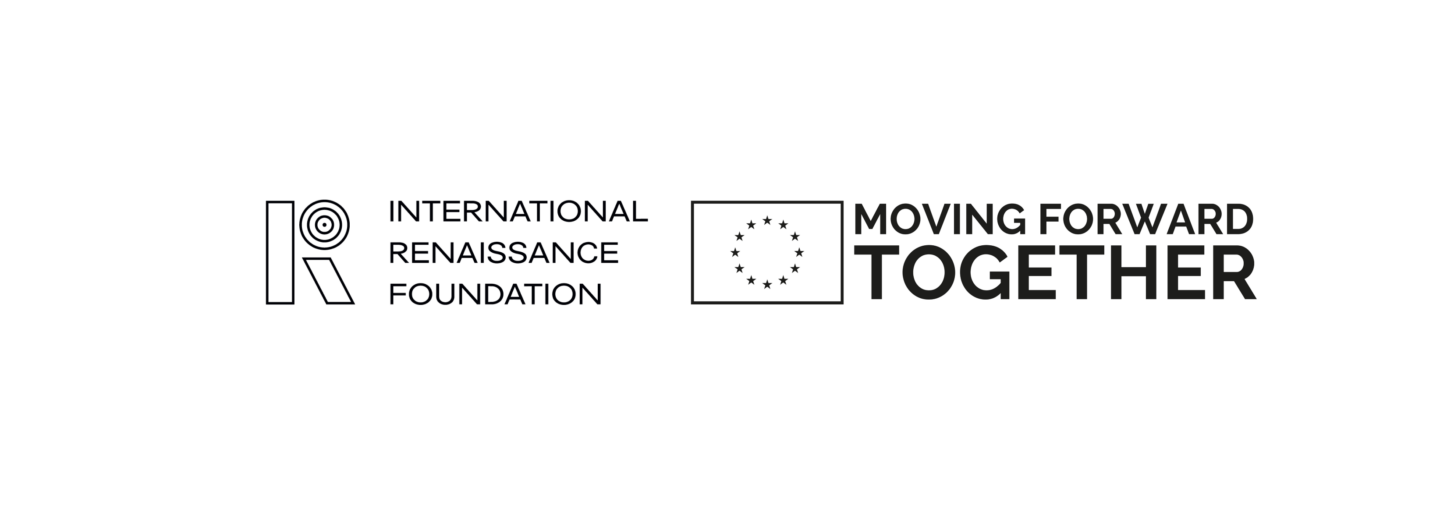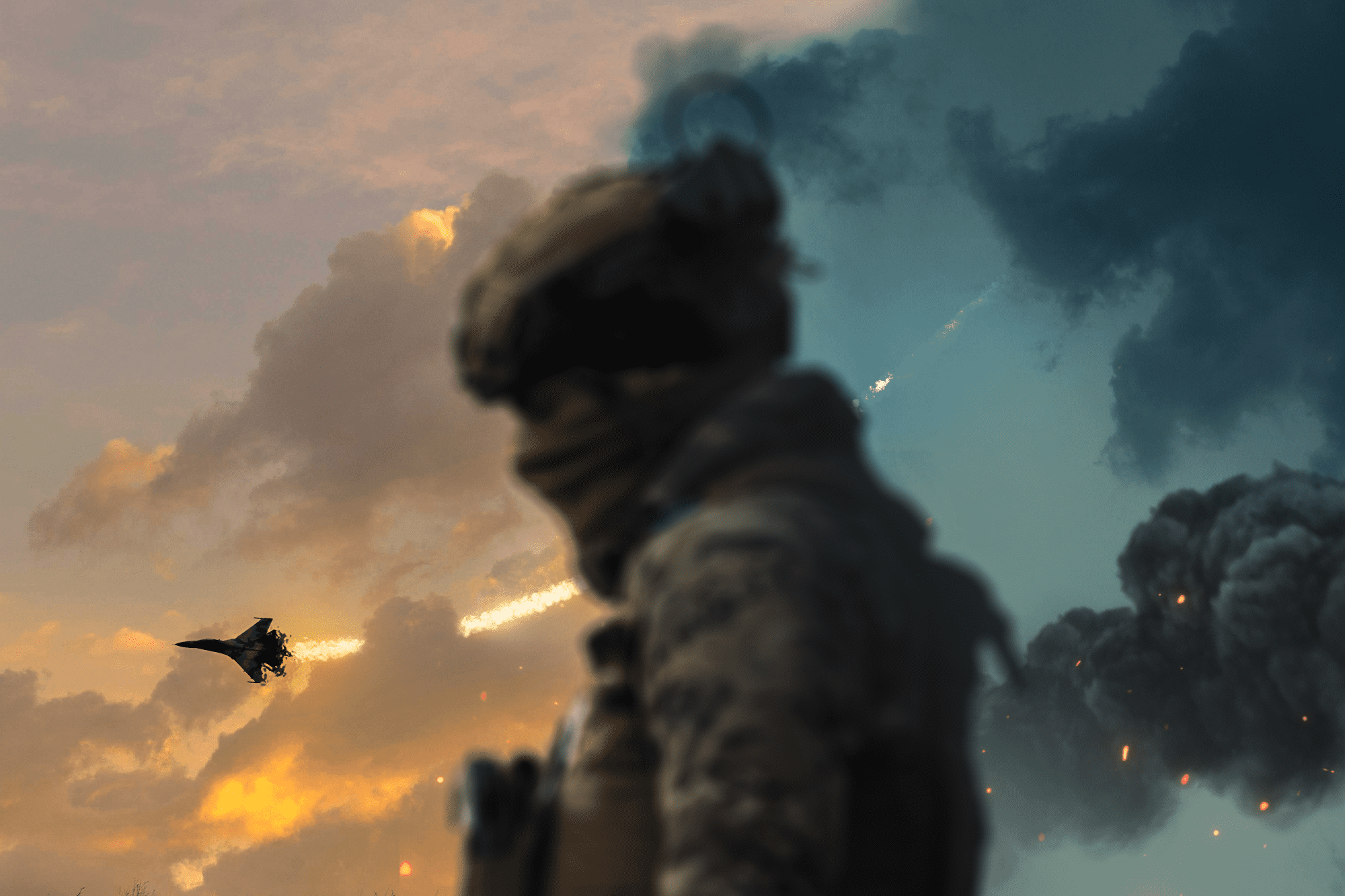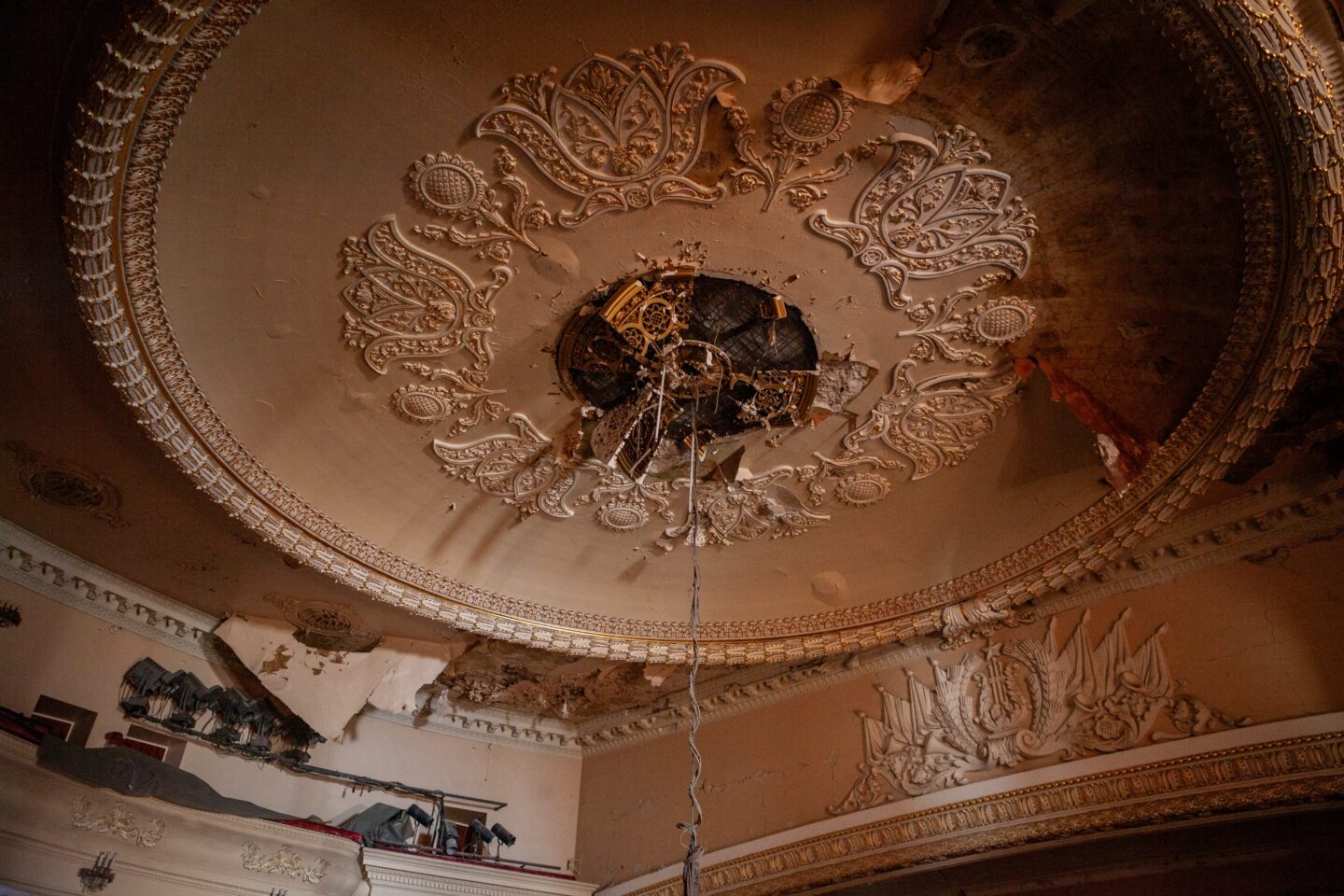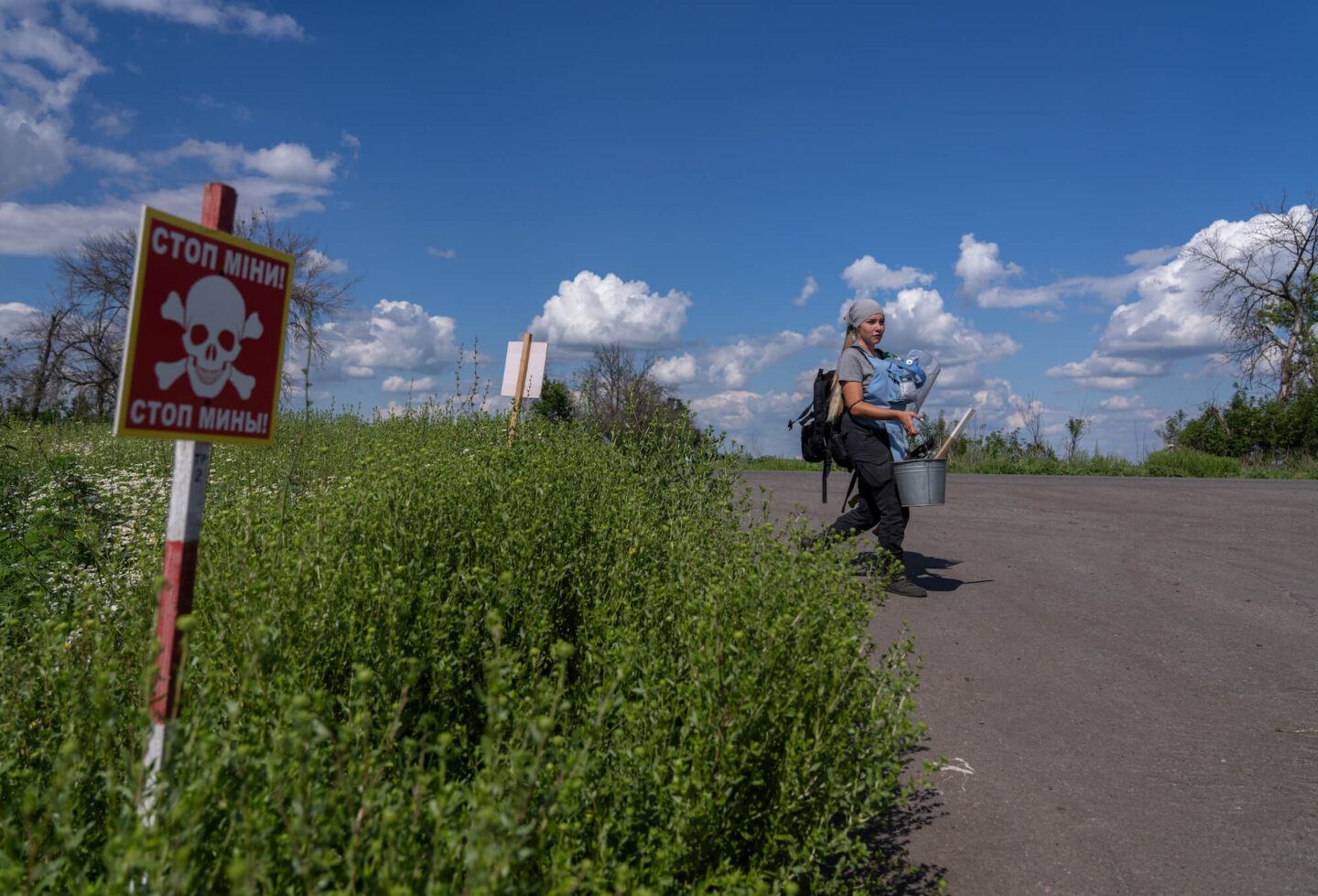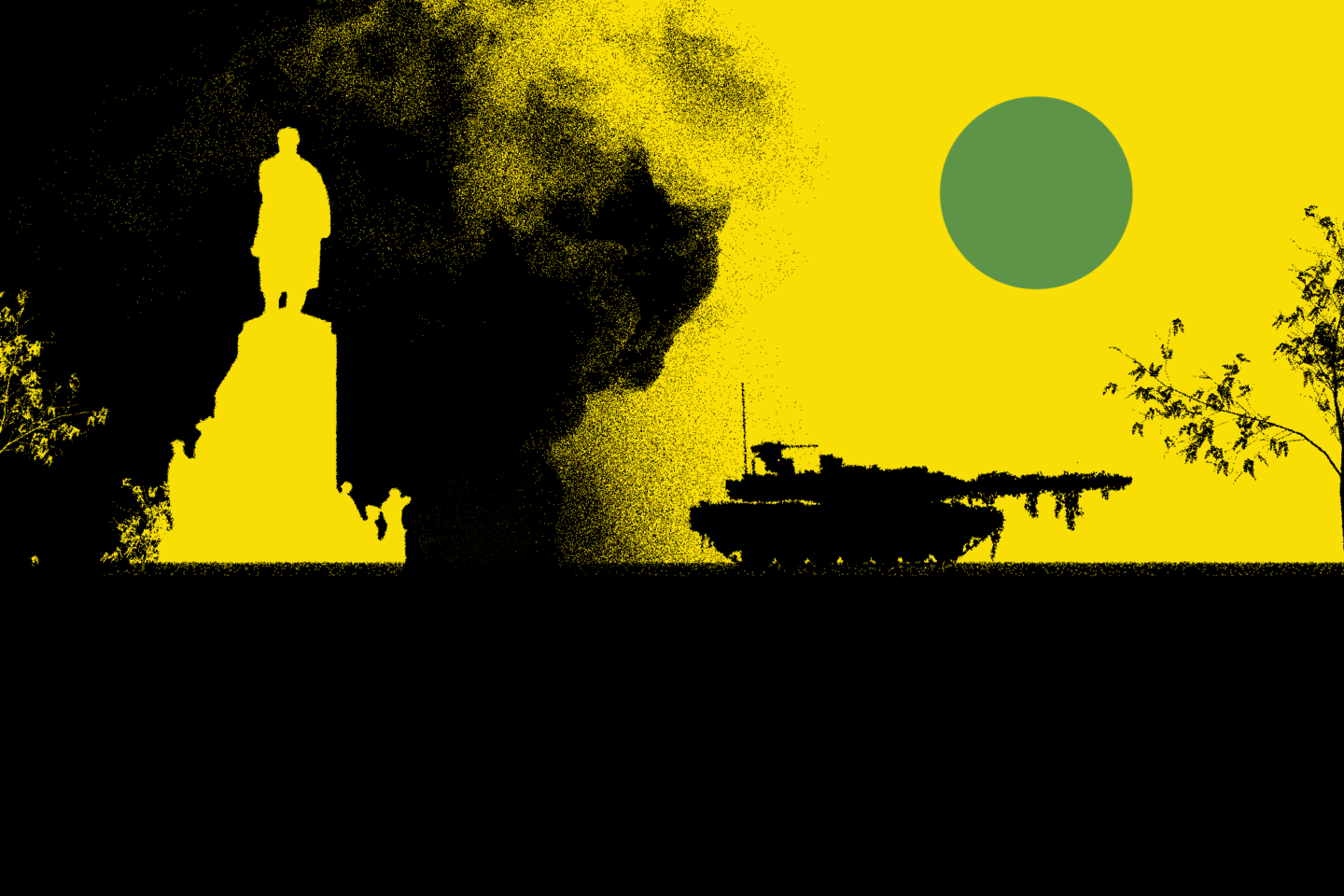To tell you the truth, I miss the freedom of movement. Especially traveling abroad. But it has already been two years since this option became rather limited. Unlike most of other male citizens, I am not deprived of it totally. At least I have my legal thirty days per year that I can use for trips and working abroad, visiting countries which, having lived through the deadliest humanity diseases, have not seen a war for more than eighty years.
I travel more for work, surely. To talk, to discuss, to assure, to advocate, and to talk again. To remind everyone that most of us, though have lived through the disease at our own time, have not developed any immunity.
“Every nation has its disease. The russian one is incurable.”
This deep in thought and enormously symbolical citation of Lina Vasylivna Kostenko, the great Ukrainian poetess, makes us think that the euthanasia would be the perfect solution for russia as a state in its current role. But, like a paranoid old man, who has been screwing the lives of his family and neighbors throughout his whole life, it still clings to this world, barely grasping our new strange reality, pisses its pants and obsessively continues to mess with lives of all those it can reach with its psoriasis-eaten hands.
So, our task is simple: we must bring the old man’s death closer, as waiting for its natural ending is rather unrealistic.
It is an utterly different misery when these are your allies who catch the disease. We are talking about the collective West. It is about our friends. Not all of them, not all the time, but consistently.
At some point, it appeared that the whole civilized world, after its dubious treatment of the russian aggression throughout 2014-2022, finally moved to the new course of unambiguity and unanimity, put on glasses with a clear gradation of black and white and had enough time to realize one simple truth about the incurable russian disease: this monster’s agony lasted obscenely too long. And who, if not them, so powerful and consolidated, were to put these suffering to the halt at long last? Let it be with our, Ukrainian, hands.
But here, light symptoms of the disease may be traced, determined both geographically and politically. These allegedly civilized heads, seemingly blind to the anti-Western spirit of russia, are still full of a kind of anti-imperial russophilia. Search for the light in the dark russian soul, the thrill of the balalaika jest, the amazement of the khokhloma and of the word at Illiusha’s stone. And, along with that, the wish to sit the Ukrainians and russians at the same festive table, or even the doubtful advice to raise the white flag. The last one, to be honest, is too blatant case of the theistic jester.
Can the Pope be justified in this situation?
Some can find the way to justify him, saying he is no adequate at all, as the adequacy is not among his prioritized worldview concepts, and, generally speaking, the Pope is a real Tolstoyan, the Pope is against the war, and he tries to stop the bloodshed at any price. Still, the Pope, being as far from the adequate perception of the reality as he is, cannot fail to know that stopping the bloodshed in this case is possible exclusively at a price of the total genocide of the people that raise the white flag. The genocide of the Ukrainians. And the old man is restlessly waiting for the chance to occupy Ukraine and turn his repressive machine on full blast. The Pope’s justification of the russians, the endless series of his unambiguous statements about the war, started by russia against Ukraine, suggest that the pontiff, despite his being the representative of the Western world, is first the representative of the Catholicism.
An altogether different thing can be said of the true friends of Ukraine. Numerous public organizations and institutions that genuinely support Ukraine and Ukrainians, making their best efforts to achieve the reconciliation, encourage dialogue between representatives of the executioner and his victim. In their picture of the world, anti-putinism is identified with all that is good and eternal, with democratic and civilized values.
While the Ukrainians, like nobody else in the world, realized long ago, that most anti-putin russians crave for the empire’s revival just as desperately as the putinists, sowing their hardly covered chauvinistic views around the globe.
For our Western friends, that old sick man who poisons the lives of those around him is a specific man sitting in his bunker and giving his criminal orders from there.
While the Ukrainians felt the filthy odor of russia as the notion, its essence and values, long ago. It is the collective evil.
It does not matter at all, if it walks in the lapti (bast shoes) or Balenciaga, if it sits in the Cherepovetska colony for double murder and cannibalism or it lives in Switzerland and writes books; its essence does not change: it is imperialism and the exaltation of their nation over others. Revanchism and aggressive militarism. In short, a twin brother of the bloody regimes of the twentieth century.
But still, our friends fail to understand this truth, which is as simple as ABC.
That’s why the extract of Navalny’s speech could be heard on the Oscar ceremony. And, both awarding the Ukrainians for “20 Days in Mariupol” and the speech—albeit dead, albeit anti-putin, but still imperialistic Navalny most naturally correlate in the minds of the Oscar organizers as one strong message “for all that is good against all that is bad”. That’s why they try so hard, even forcefully, to make the Ukrainian cultural figures unite with our enemy and share our hatred of putin and love to the glimmer of light in the russian soul.
Even now, over two years into the full-scale russian invasion, the evident has still not become so evident for the West, and their moral relativism makes us, Ukrainians, wonder: how can one place the executioner and the victim at the same table? And why should the victim, rather than just chasing revenge, shake hands with the aggressor, who still holds a knife in the other hand?
Our friends’ overwhelming desire to make us hear our enemy sometimes provokes an unexpected reaction. Our friends cannot be heard.
But still.
Taking into account that only russian disease is incurable, our friends’ russophilia is not a progressing illness, but the one that can be cured, or at least, stopped from developing. And the Ukrainians put their best efforts into it. Soft power, ambassadorship of Ukraine’s interests as a state and as a nation, public diplomacy, recording and coverage of the war crimes, as well as systematic and continuous voicing of obvious truths on all Western platforms is the very magic pill that can cure some clouded Western minds and remind once again that russian aggression against Ukraine is not an arthouse drama, but a real tragedy capable of spreading its bacillus all over the well-fed European continent.
Artem Chekh, writer, junior sergeant of the Armed Forces of Ukraine; in 2015-2016 he voluntarily came to the defense of Ukraine; since the beginning of the full-scale war he has been back in the ranks of the Armed Forces.
Illustration — Vadym Blonskyi
Translation — Olha Dubnevych
§§§
[The translation of this publication was compiled with the support of the European Union and the International Renaissance Foundation within the framework “European Renaissance of Ukraine” project. Its content is the exclusive responsibility of the authors and does not necessarily reflect the views of the European Union and the International Renaissance Foundation]
